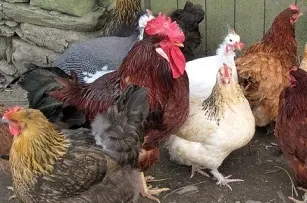A new breed of indigenous chicken, touted as being highly adaptable and producing higher amounts of eggs and meat, is the Kenyan Agricultural Research Institute’s (KARI) newest introduction to the Kenyan market
One hen from the new breed can produce between 220-280 eggs per annum and the breed is highly adaptable to local climatic conditions and management systems, according to a research report in the Organic Farmer.
KARI senior researcher Dr Ann Wachira said that the breed’s ability to acclimatise to harsh environments makes it favourable to those farming in arid and semi-arid districts, such Kitui, Mwingi, and Machakos.
"The birds can do well under free-range and organic farming management systems," said Wachira, who added that the breed’s feathering allows it to adjust much faster than average to different environments.
If given 6.20kg of quality feed over a five-month duration, a hen can reach up to 1.5kg in weight, and likewise a cock that has consumed 6.8kg of feed can weigh 2.10kg.
In preparation of the expected success and results of the breed, KARI has invested in a new modern incubator with a 35,000 egg capacity.
The introduction follows news that the Kenyan poultry industry has undergone significant growth, after poultry farmers in the country’s central province earned KES 4.1 billion (US$47.3 million) over 2011.
Speaking last month, central provincial director of livestock production, Mary Kanyi, commented, "A high demand for poultry products in the country's major urban areas has greatly fuelled the industry to thrive, with local hatcheries struggling to cope with the current demand by farmers for day-old chicks."





